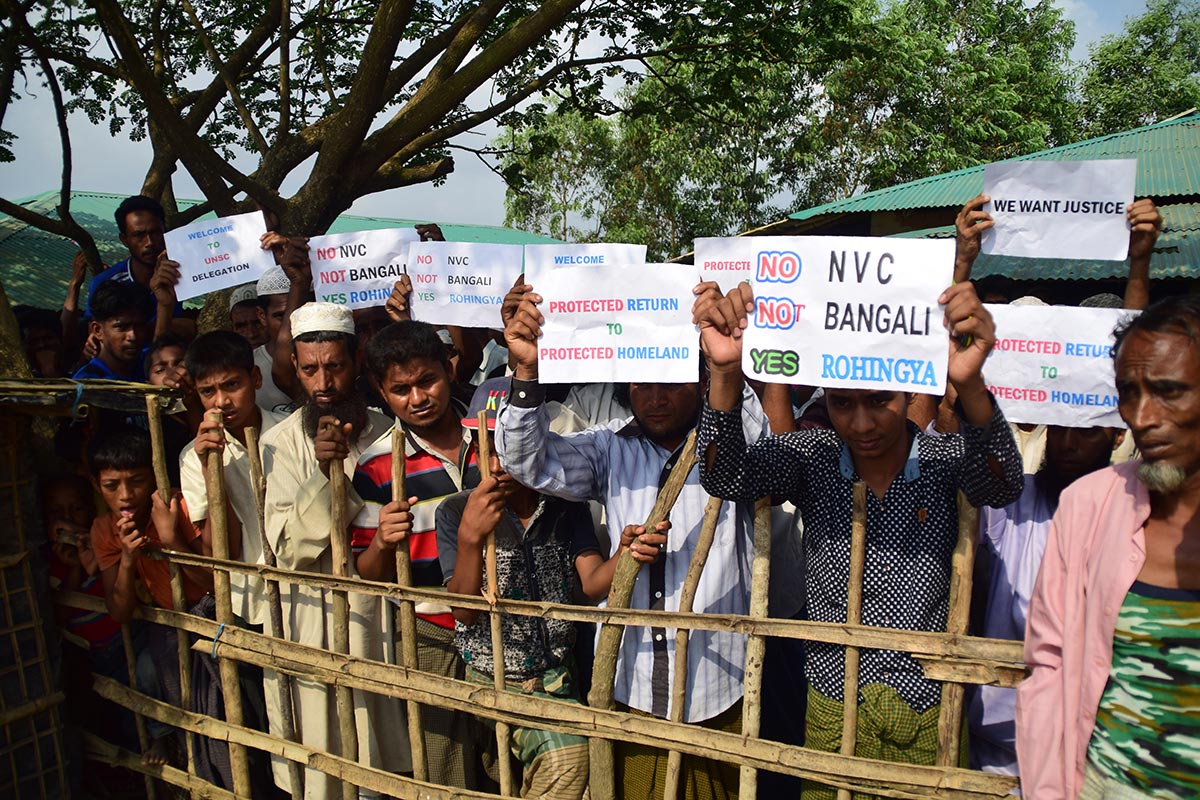On 6 June 2018, the government of Myanmar and the United Nations (UN) signed a Memorandum of Understanding (MoU) on assistance for the repatriation of displaced persons from Rakhine State.
Ever since the latest round of violence against the Rohingya occurred in August last year, more than 650,000 Rohingya refugees have fled Myanmar, crossing the border into Cox’s Bazar in Bangladesh. The Rohingya Muslim community has faced decades of systemic oppression in Myanmar and the latest exodus into Bangladesh is one of many instances of the Rohingya fleeing junta-controlled Myanmar. After a recent biometric registration programme carried out by the Bangladeshi army, it was found that Bangladesh is currently hosting more than a million refugees.
The Myanmar government has received intense backlash for its treatment of the Rohingya. United Nations Human Rights Council (UNHCR) chief Zeid Ra’ad Al Hussein has called the violence against the Rohingya community as “textbook ethnic cleansing”. The UN has also stated that the situation is the “world’s fastest growing refugee crisis”.
Earlier this year, Myanmar and Bangladesh agreed to a repatriation plan which would see 1,500 Rohingya returning to Myanmar each week with Bangladesh aiming to send all its Rohingya refugees back home within two years. The plan however was later pun on hold after it received widespread criticism from humanitarian organisations.
“Given the scale and horror of the abuses inflicted on the Rohingya, any arrangement on returns must first address the conditions of apartheid that the Rohingya have fled from,” said Charmain Mohamed, Head of Refugee and Migrants Rights at Amnesty International.

Source: Various sources
Myanmar has insisted that it is willing to take back every single refugee. Despite that, the country shows no signs of guaranteeing the safety of the Rohingya. The government there still refuses to acknowledge its role in the violence against the Rohingya. Government officials have consistently denied charges by the UN that the country is engaging in “ethnic cleansing” and has even claimed that it was Rohingya militants that burned down the villages where the Rohingya were living. This has raised concerns that the Rohingya would be returning to the same conditions they ran away from in the first place, thus perpetuating the vicious cycle of violence.
The Myanmar government has also failed to grant citizenships to returning Rohingya Muslims. The Myanmar authorities stopped recognising the Rohingya after a law was amended in 1982 that excluded the group from a list of 135 “national races” recognized by the predominantly Buddhist country.
There is also the question of shelter for the Rohingya refugees. One of the reasons why the refugees fled was due to having their homes and villages burnt. In the initial repatriation plans put forward in January, Myanmar said that upon arrival, the refugees would stay in temporary state-built camps. The worry here is that the returning Rohingya will face having to live in conditions worse than what they faced in the Bangladeshi refugee camps.
The Rohingya refugees in Bangladesh are having to live in squalid conditions. The camps there are crowded, while water and food are scarce. Furthermore, Rohingya refugees have to brace themselves for the monsoon season that will soon hit Bangladesh.
A recent fact-finding mission by the ASEAN Parliamentarians for Human Rights (APHR) to Bangladesh found that many Rohingya refugees have expressed the desire to be repatriated but with several conditions. “They want to return to their homeland, but only if their conditions are met. These include citizenship, justice, compensation, and security guarantees. In any discussions of possible repatriation, these and other demands of the refugees must be heeded, and their human rights must be respected,” said a spokesperson for the APHR.
According to the UN, the MoU will provide a “framework of cooperation” that aims to create suitable conditions for “voluntary, safe, dignified and sustainable” repatriation of Rohingya refugees. However, many remain skeptical of such an outcome. Some observers have even suggested that the government of Myanmar is only going along with this agreement as a public relations exercise to present a cleaned-up image of the country to the global community.
On a positive note, the deal does give the UN access to assist and assess the situation in the Rakhine state, which they were denied previously. The agreement is a step in the right direction to further pressure Myanmar to make changes. Unfortunately, as history has shown in the past, the government of Myanmar does not give in to pressure.
